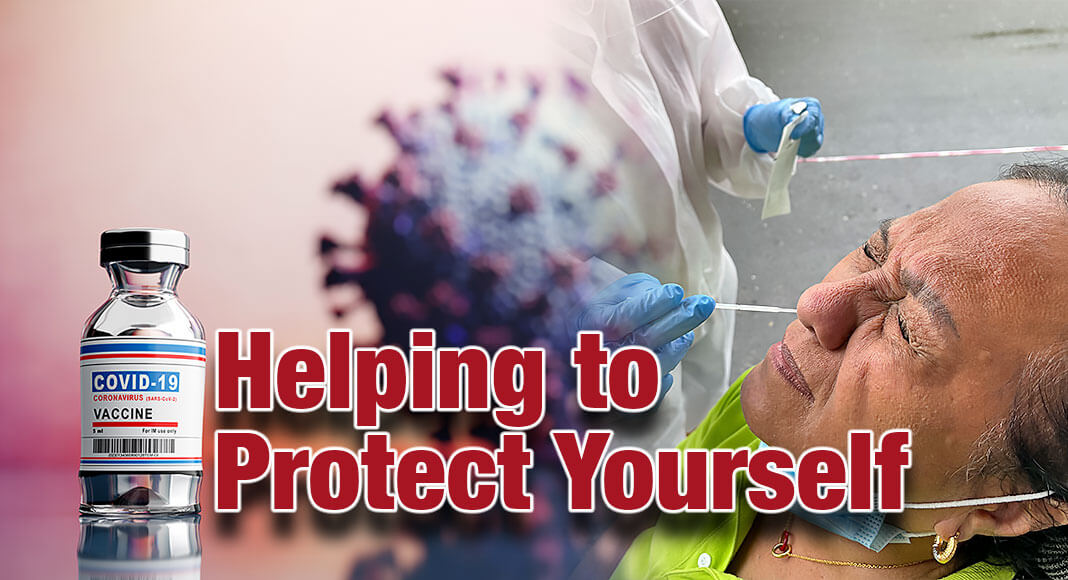
Mega Doctor News
The CDC is streamlining its COVID-19 guidance to help people better understand their risk, how to protect themselves and others, what actions to take if exposed to COVID-19, and what actions to take if they are sick or test positive for the virus. COVID-19 continues to circulate globally, however, with so many tools available to us for reducing COVID-19 severity, there is significantly less risk of severe illness, hospitalization and death compared to earlier in the pandemic.
“We’re in a stronger place today as a nation, with more tools—like vaccination, boosters, and treatments—to protect ourselves, and our communities, from severe illness from COVID-19,” said Greta Massetti, PhD, MPH, MMWR author. “We also have a better understanding of how to protect people from being exposed to the virus, like wearing high-quality masks, testing, and improved ventilation. This guidance acknowledges that the pandemic is not over, but also helps us move to a point where COVID-19 no longer severely disrupts our daily lives.”
In support of this update CDC is:
- Continuing to promote the importance of being up to date with vaccination to protect people against serious illness, hospitalization, and death. Protection provided by the current vaccine against symptomatic infection and transmission is less than that against severe disease and diminishes over time, especially against the currently circulating variants. For this reason, it is important to stay up to date, especially as new vaccines become available.
- Updating its guidance for people who are not up to date on COVID-19 vaccines on what to do if exposed to someone with COVID-19. This is consistent with the existing guidance for people who are up to date on COVID-19 vaccines.
- Recommending that instead of quarantining if you were exposed to COVID-19, you wear a high-quality mask for 10 days and get tested on day 5.
- Reiterating that regardless of vaccination status, you should isolate from others when you have COVID-19.
- You should also isolate if you are sick and suspect that you have COVID-19 but do not yet have test results.
- If your results are positive, follow CDC’s full isolation recommendations.
- If your results are negative, you can end your isolation.
- You should also isolate if you are sick and suspect that you have COVID-19 but do not yet have test results.
- Recommending that if you test positive for COVID-19, you stay home for at least 5 days and isolate from others in your home. You are likely most infectious during these first 5 days. Wear a high-quality mask when you must be around others at home and in public.
- If after 5 days you are fever-free for 24 hours without the use of medication, and your symptoms are improving, or you never had symptoms, you may end isolation after day 5.
- Regardless of when you end isolation, avoid being around people who are more likely to get very sick from COVID-19 until at least day 11.
- You should wear a high-quality mask through day 10.
- Recommending that if you had moderate illness (if you experienced shortness of breath or had difficulty breathing) or severe illness (you were hospitalized) due to COVID-19 or you have a weakened immune system, you need to isolate through day 10.
- Recommending that if you had severe illness or have a weakened immune system, consult your doctor before ending isolation. Ending isolation without a viral test may not be an option for you. If you are unsure if your symptoms are moderate or severe or if you have a weakened immune system, talk to a healthcare provider for further guidance.
- Clarifying that after you have ended isolation, if your COVID-19 symptoms worsen, restart your isolation at day 0. Talk to a healthcare provider if you have questions about your symptoms or when to end isolation.
- Recommending screening testing of asymptomatic people without known exposures will no longer be recommended in most community settings.
- Emphasizing that physical distance is just one component of how to protect yourself and others. It is important to consider the risk in a particular setting, including local COVID-19 Community Levels and the important role of ventilation, when assessing the need to maintain physical distance.
Actions to take will continue to be informed by the COVID-19 Community Levels, launched in February. CDC will continue to focus efforts on preventing severe illness and post-COVID conditions, while ensuring everyone have the information and tools, they need to lower their risk.
This updated guidance is intended to apply to community settings. In the coming weeks CDC will work to align stand-alone guidance documents, such as those for healthcare settings, congregate settings at higher risk of transmission, and travel, with today’s update.











